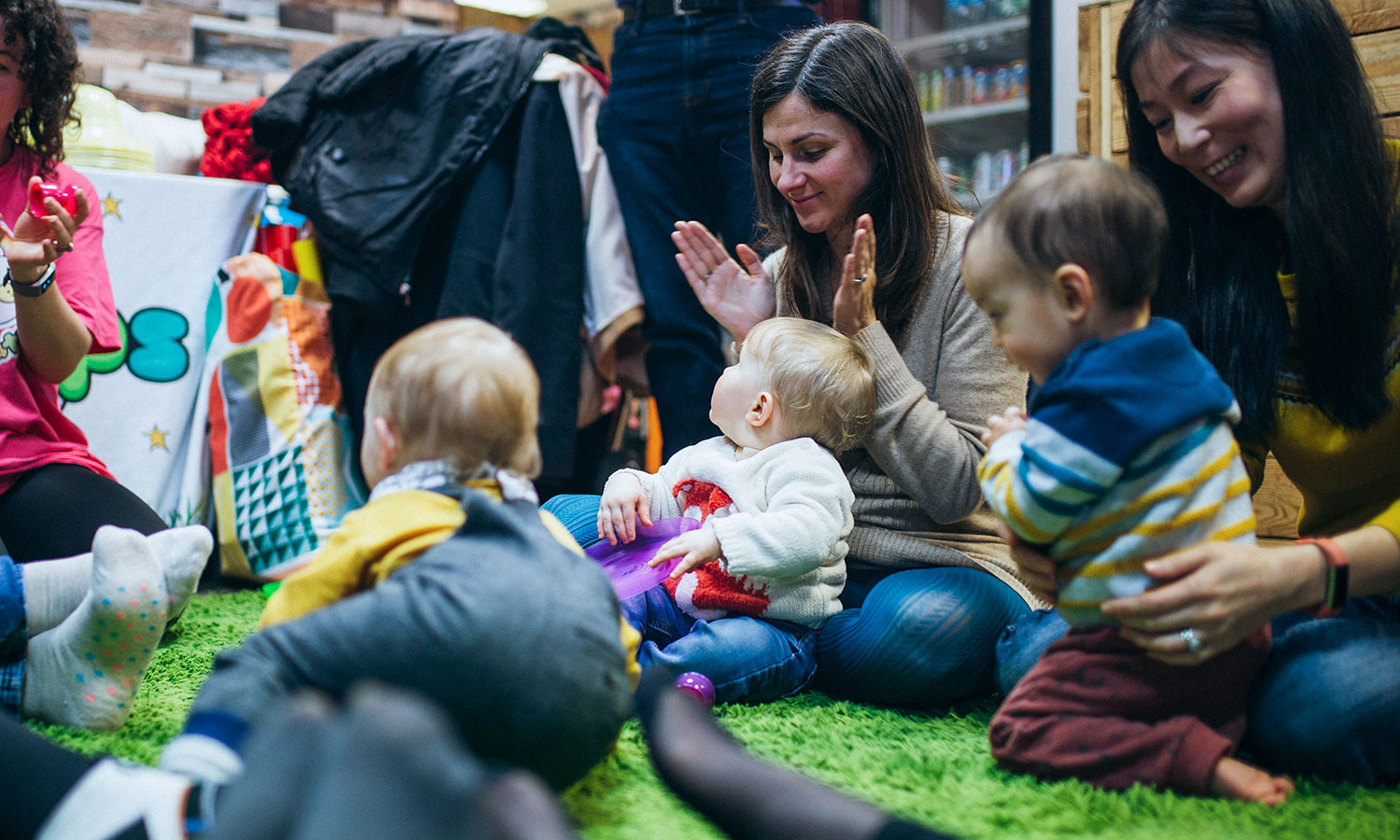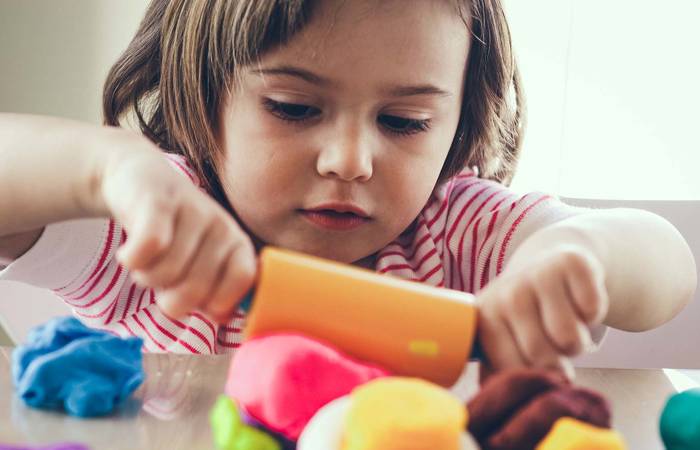Like what you see?
Sign up to receive more free parenting advice.
Thank you for subscribing to our newsletter!
Early Learning

Credit: iStock.com/DGLimages
Play is the cornerstone for children's learning and parents have an important role to play.
Laureate Professor Marilyn Fleer, Foundation Chair in Early Childhood Education and Development at Monash University, says her work shows how important it is for carers to play in new ways with their children.
“The importance for carers to engage with their children in play is firstly about the value of play between children and their carers. It’s about the joy of learning together, to build beautiful relationships with each other and to have a happy experience for both the child and adult,” she says.
“Secondly, we know from our research that carers have an important role in building a child’s imagination, and that imagination is what children need to understand really complex concepts that they work with later on in school.”
Professor Fleer adds that adults support children’s socio-emotional, cognitive, language and self-regulation skills in play at home.
Professor Fleer’s colleague, Dr Prabhat Rai, Senior Research Fellow at Conceptual PlayLab at Monash University says, “instead of seeing children’s play as ‘free play’, we see that it has a clear intentional purpose and parents can offer new possibilities for children’s learning through play in the home”.
Parents as play partners
Professor Fleer points out that parents want the best for their children.
“All parents want to do something that supports their child’s learning and development, whether the outcome is just to be happy or whether to learn specific things so that their child has a head start at school,” Professor Fleer says.
Some parents can find the idea of imaginary play quite overwhelming. But they don’t need to as it can be as simple as finding something you both enjoy doing and adding an element of imagination to it.
Professor Fleer gives the example of a family kicking a ball back and forth and turning that into an imaginary game of football.
“Mum, dad and an uncle were kicking a ball back and forth with four children,” she says.
“This was purely a functional game where the children were developing some skills, but then the grandmother entered the play and started narrating the play as an exciting football match.
“She explained the rules and changed the dynamic of the play.
“As she grabbed the ball, the children pretended to tackle her.
“She added the excitement to their play and the children were swept up in the joy of the game, and so were the adults as it was a collective imaginary situation.”
Dr Rai adds that carers play different roles within play scenarios.
“Sometimes, they are play partners, sometimes they lead the child in the play, sometimes the parent asks a question to get the child thinking and sometimes they work together as explorers within the imaginary situation,” he explains.
All parents want to do something that supports their child’s learning and development, whether the outcome is just to be happy or whether to learn specific things so that their child has a head start at school.Laureate Professor Marilyn Fleer
Stay up to date with the latest news and articles from First Five Years
Thank you for subscribing to our newsletter!
The development of imaginary play
While the definition of play is quite broad, Professor Fleer’s work has focused on imaginary play.
“Imaginary play can begin quite simply where a child can change an object’s meaning, for example a wooden block can become a car,” she explains.
“As the play matures and the child and adult engage in more complex play, children begin to use their words and gestures to indicate how they have changed the meaning of the object, so for example rocking and shushing a teddy bear to indicate it’s a baby.
“Then the next step is that the child spends longer talking about the rules of play and they will leave the play situation to direct the play.
“For example, if a rule was broken during the play, the child will say, no, your baby can’t do that because we are in a hospital and all the babies are sick. Then they will jump back into the situation to keep playing.
“Finally, as the play becomes even more sophisticated, children will remain inside the play situation and use the narrative of the play to correct the other participants.
“For example, they will say, ‘this baby has a fever so it must be sick’.”
How to add to play
In a 2021 report, Professor Fleer and her colleagues found a gap in the research on children's science learning especially in the first three years.
Developed by Professor Fleer, Conceptual PlayWorld is an evidence-based model of intentional teaching using STEM (science, technology, engineering and mathematics) concepts.
“Conceptual PlayWorld is an imaginary model created by an educator where young children are invited to go on imaginary journeys, meet and solve challenges, and learn STEM concepts – all while playing,” says Professor Fleer.
Dr Rai explains that parents can register for the program for free which is delivered online.
While it can seem quite daunting, Dr Rai shows how easy it is for parents to extend their child’s imagination and introduce STEM concepts.
“In one session, we started off with the popular children’s book, Time for Bed by Mem Fox, which is about animals saying goodnight to each other,” he explains.
He says that while the book has many different concepts, in one module they focused on light and shadows.
The educator helped families set up environments where children could experience shadows, for example a darkened bedroom with a torch.
“To extend on that, we held a shadow dance, with light and music so children could play with the shadows,” he says.
“They could observe the difference in everyone’s shadows and how shadows change depending on the distance from the light source.”
The next stage was introducing a meaningful problem for the children to resolve with their carer.
“In this example, it was a story of a young child who entered a dark room and couldn’t see their own shadow and why was this and how could we help that child,” he explains.
“Conceptual PlayWorld is about providing joy and fun for children and adults in creating collective imaginary situations that show children new opportunities in their play,” Dr Rai emphasises.
Tips for imaginary play:
- Acknowledge that play is the joy of being together and having fun together.
- Rethink the parent as the authority but rather a play partner.
- Find something you both enjoy doing.
- Add imagination to everyday activities, like going for a walk and pretending to be dogs and how a dog would see that walk.
- Children love repetition, so repeat the play and just change something small to have it take on a new meaning.






